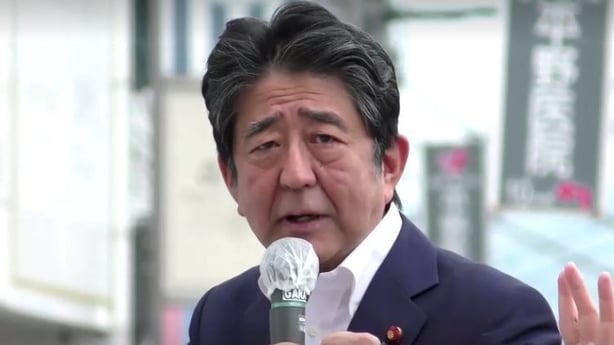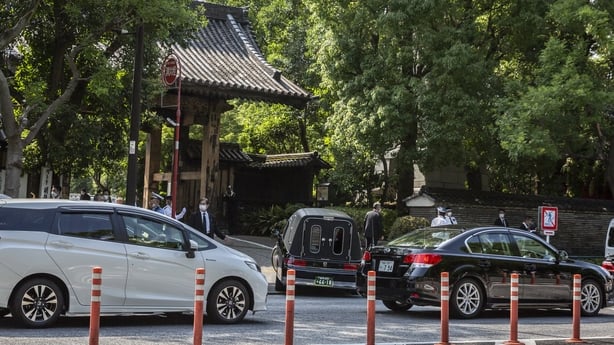Japan's ruling party and partners won enough votes to form a super majority in an upper house election held just days after the assassination of former prime minister Shinzo Abe, local media said.
The ex-premier's ruling Liberal Democratic Party (LDP) and its coalition partner Komeito strengthened their hold by winning more than 75 of the 125 upper house seats up for grabs, according to national news outlets.
The parties are part of what is now a two-thirds super majority willing to amend the country's pacifist constitution, thereby strengthening its military role on the global stage - a longtime Abe goal.
Even before the former prime minister's murder, the LDP and Komeito were expected to cement their majority, though the final number of seats will be scrutinised for signs of whether the attack bolstered support for them.
"I think it is significant we were able to complete the elections," Prime Minister Fumio Kishida told NHK, adding he wants to tackle the pandemic, Ukraine-related issues and inflation.
Mr Kishida had insisted the election proceed despite the assassination, saying "we must never allow violence to suppress speech."
Conceding defeat, Kenta Izumi, leader of the opposition Constitutional Democratic Party, which was projected to have lost several seats, said it was clear "voters did not want to switch from the LDP and entrust us with running the government," according to Kyodo News.
Turnout for the election remained low at only 52%, national outlets reported.
Mr Abe was shot at close range on Friday in the western region of Nara, and died at a local hospital. His body was brought to his family home in Tokyo on Saturday.

The man accused of his murder, 41-year-old Tetsuya Yamagami, is in custody and has told investigators he targeted Mr Abe because he believed the politician was linked to an unnamed organisation.
Local media have described the organisation as religious and said Mr Yamagami's family had suffered financial trouble as a result of his mother's donations to the group.
He also reportedly visited the western region of Okayama on Thursday with the intent of killing Mr Abe at a different event, but backed out because participants had to submit their names and addresses.
With little violent crime and tough gun laws, security at Japanese campaign events can be relaxed, though in the wake of Mr Abe's murder, measures were beefed up for Mr Kishida's remaining appearances.
Police have promised a "thorough investigation" into what the head of the Nara regional police called "problems with guarding and safety measures" for Mr Abe.
"In all the years since I became a police officer in 1995... there is no greater remorse, no bigger regret than this," chief Tomoaki Onizuka tearfully told reporters on Saturday evening.
Mr Abe's office told AFP that a wake would be held tonight, with a funeral for family and close friends only on Tuesday. Local media said both were expected to be held at Tokyo's Zojoji Temple.

US Secretary of State Antony Blinken, who was in Asia for meetings, arrived in Tokyo this morning to see Mr Kishida and offer condolences in person.
Mr Kishida is expected to reshuffle his cabinet in the coming months.

